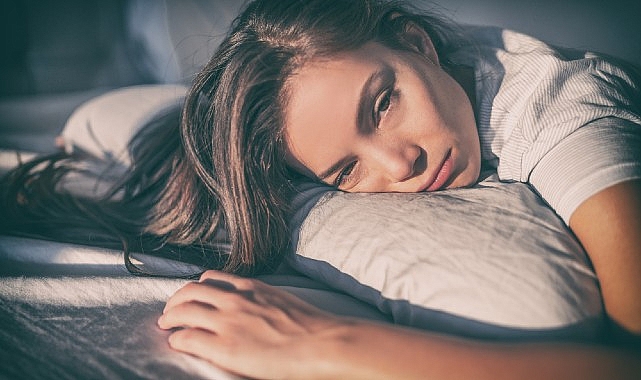
In addition to a healthy life, in order for us to perform our daily functions, we need quality and sufficient sleep, just like breathing. Sleep provides rest for the body, and most importantly, the renewal of mental functions.
Therefore, in addition to important health problems when we are sleep deprived, many problems can develop that negatively affect our daily work, from forgetfulness to lack of attention, from fatigue to having problems in perception, from feeling nervous and depressed to slowing the reaction time of the body in the face of difficulties!
A study conducted at the University of California and published in the journal Plos Biolog in August 2022 revealed another problem caused by insomnia; be less helpful! So why do people become less helpful when they are sleepless at night? Acıbadem Bakırköy Hospital Brain and Nerve Surgery Specialist Prof. Dr. Gökhan Akdemir said, “If people are well fed, slept and rested in a safe place, they feel strong in the face of difficulties that arise in daily life and think that they can overcome them.
If they did not sleep well at night, they could not rest. They have high anxiety, they think that they will have difficulty in protecting themselves and their families, and they get stressed. prof. Dr. Noting that this stress causes significant changes in the body, Gökhan Akdemir said, “For example, the hormone cortisol, known as the stress hormone, is secreted by the joint contribution of the hypothalamus, pituitary and adrenal glands.
When we are under stress, this hormone increases even more. The increased cortisol hormone makes the sympathetic system dominant. When we are in danger or when we are inadequate, the sympathetic system leads to behaviors that protect ourselves more so that we can think, make decisions and overcome difficulties in life if we are sleep deprived. Therefore, people become selfish and avoid helping to protect themselves.”
One out of every 4 people in our country is sleep deprived!
The incidence of insomnia problem; It varies according to age, education level and economic income. While 2 out of 10 people in the world experience insomnia at night, 5 out of 10 people suffer from insomnia at least 1-2 times a month. While the rate of insomnia in general is around 30 percent, this figure rises to 38 percent in our country. In other words, 4 out of 10 people in our country struggle with insomnia.
Insomnia threatens the brain
Considering that an adult sleeps an average of 7-8 hours a day, it means that one third of our life is spent in sleep. Sleep, which covers an important part of our lives, has a key role on our brain health. As with cells in other parts of our body, neurons in our brain are supported by cells called glia. While working during the daytime, many waste materials such as beta albumin and tau emerge during the operation of the nerves in our brain. These wastes are cleared from the brain by glia cells during sleep, so when we wake up after a good night’s sleep, our brain is ready for a new day. When we are sleep deprived, the waste materials in our brain cannot be removed from our brain because the glia cells cannot fulfill their duties. As a result, our nerve cells slow down in their work, forgetfulness, and difficulties in making decisions.
Insomnia prevents benevolence
The study, carried out at the University of California, was conducted on 3 types of insomnia groups. prof. Dr. Gökhan Akdemir summarizes the study showing how insomnia affects benevolence as follows:
Those who sleep less a day: The first study was conducted on 24 young people aged 18-26 who slept less than 7 hours in 24 hours. In the research, a survey was conducted on the ‘helping’ behaviors of young people. In addition, with functional magnetic resonance (MR) imaging, brain activities were measured in some parts of the brain, such as the middle prefrontal cortex (forehead part) and superior temporal sulcus (temporal part), which are involved in socialization and helping behaviors. In functional MRI studies; A high rate of 78 percent decrease was observed in the activities of the ‘socializing and helping’ behavioral regions of the brain when sleep deprived. Scientists have divided ‘helping’ into two groups as helping relatives and strangers. In the research; It has been determined that they help foreigners less. The reason for this is that people act to protect themselves and their relatives first when they are sleep deprived.
Those who slept less for four days: In the second study conducted on 171 people; The ‘helping’ behaviors of people who slept less for 4 days were also examined by conducting a survey. In this group, it was determined that there was a significant decrease in benevolence.
Those who sleep less according to the time application: In the third group, the ‘daylight saving time application’ was taken into account. In the changes made in March, people sleep an hour less, and in November they sleep an hour more. The donations of more than 3 million philanthropists were analyzed between 2002 and 2016. The effect of a one-hour change in March and November on donations was examined. As a result of the study; It was found that groups donated less when they slept less and more when they slept more.
Source: (BYZHA) – Beyaz News Agency

